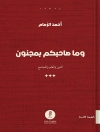This book approaches the subject of AIDS pedagogy by analysing the complex links between representation or discourse, ideology, power relations and practices of self, understood from the perspective of embodiment. While there is a fairly large amount of literature available on the social, economic, psychological and policy dimensions of the epidemic, there is virtually nothing on its cultural politics. As a critique of the national AIDS pedagogy, this book attempts to fill the gap. It addresses important issues in cultural studies, body studies, medical humanities, disease control policy and behaviour change communication strategies. This book will be of interest to researchers and students of culture studies and social sciences, especially social anthropology, community health, health management. and gender studies.
Tabela de Conteúdo
Chapter 1: AIDS Awareness and Behaviour Change: An Interdisciplinary Perspective.- Chapter 2: Pedagogy, power and the subject of disease control.- Chapter 3: Incipient Pedagogy I: AIDS in the National Media.- Chapter 4: Incipient Pedagogy II: AIDS Narratives.- Chapter 5: AIDS and the Enigma of Law.- Chapter 6: AIDS Awareness Campaigns: Pedagogy as Strategy.- Chapter 7: AIDS Amma Shrine: Pedagogy as Tactics.- Chapter 8: Conclusion: Towards a Critical Medical Humanities.
Sobre o autor
Dilip Kumar Das is Professor of Cultural Studies in the School of Interdisciplinary Studies at The English & Foreign Languages University, Hyderabad. He is a recipient of a Fulbright Postdoctoral Fellowship at the University of Illinois, Urbana-Champaign, USA and a South Asia Regional Fellowship from the Social Science Research Council, New York. His research area is interdisciplinary body studies, and he has published essays on the social dimensions of disease.












